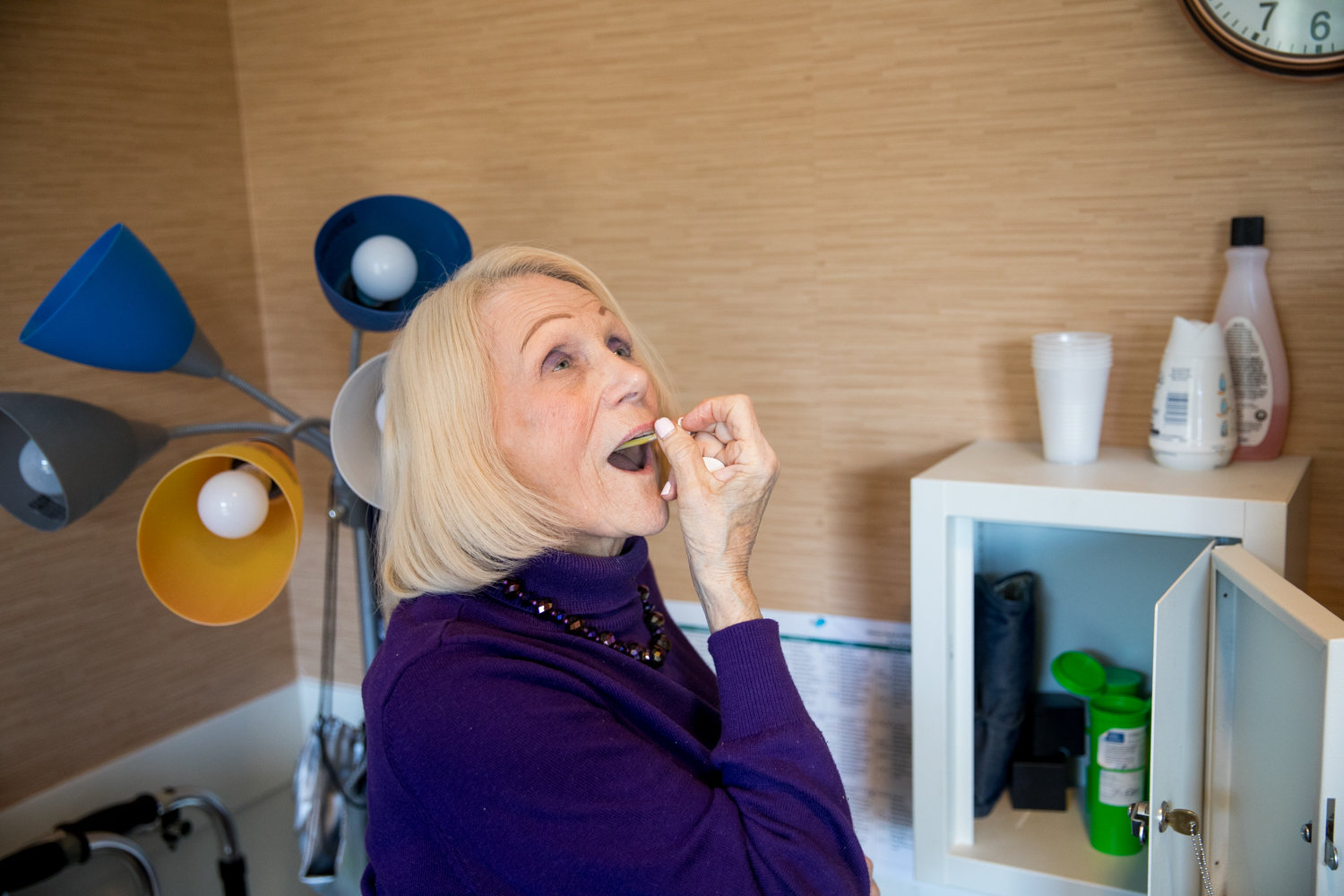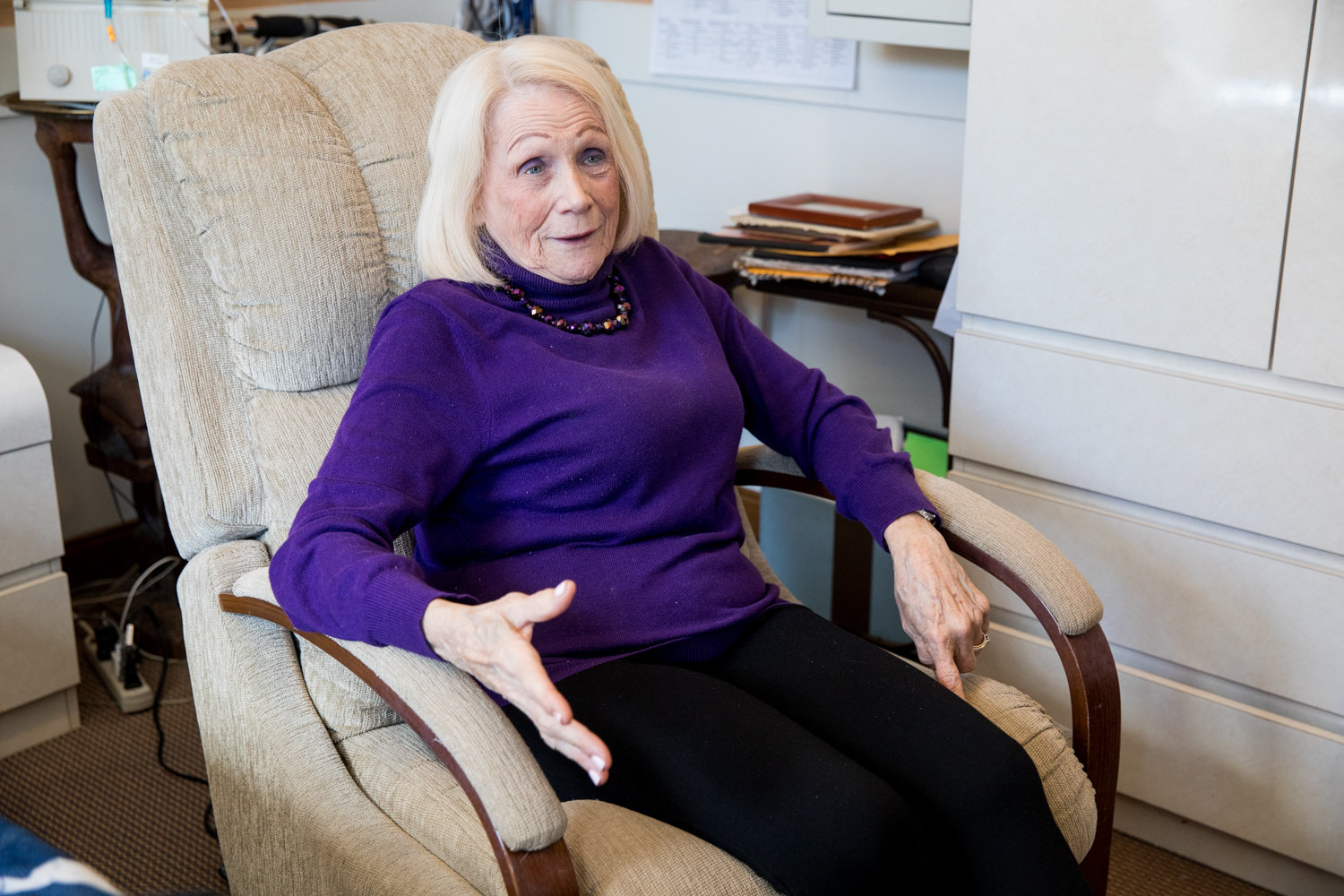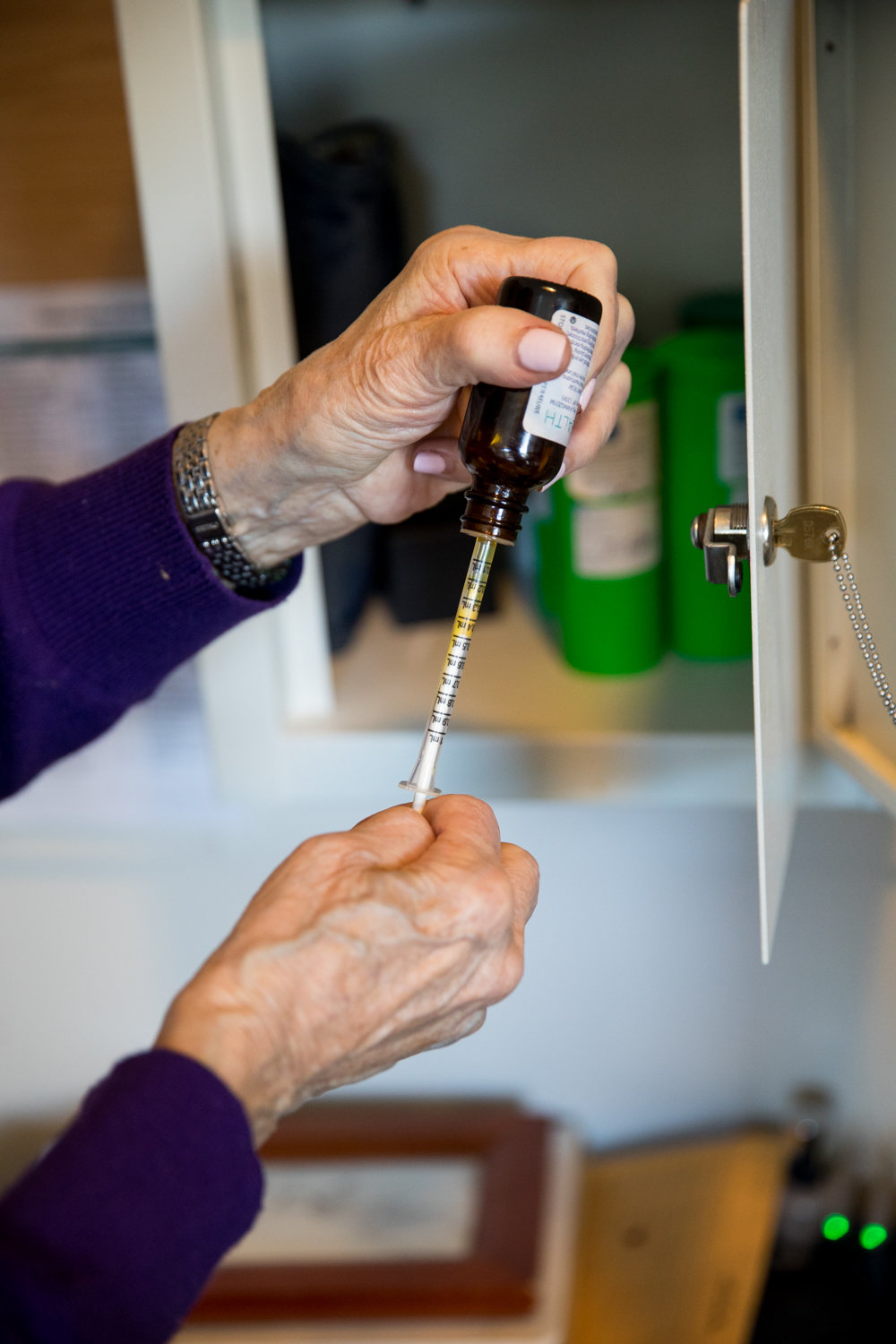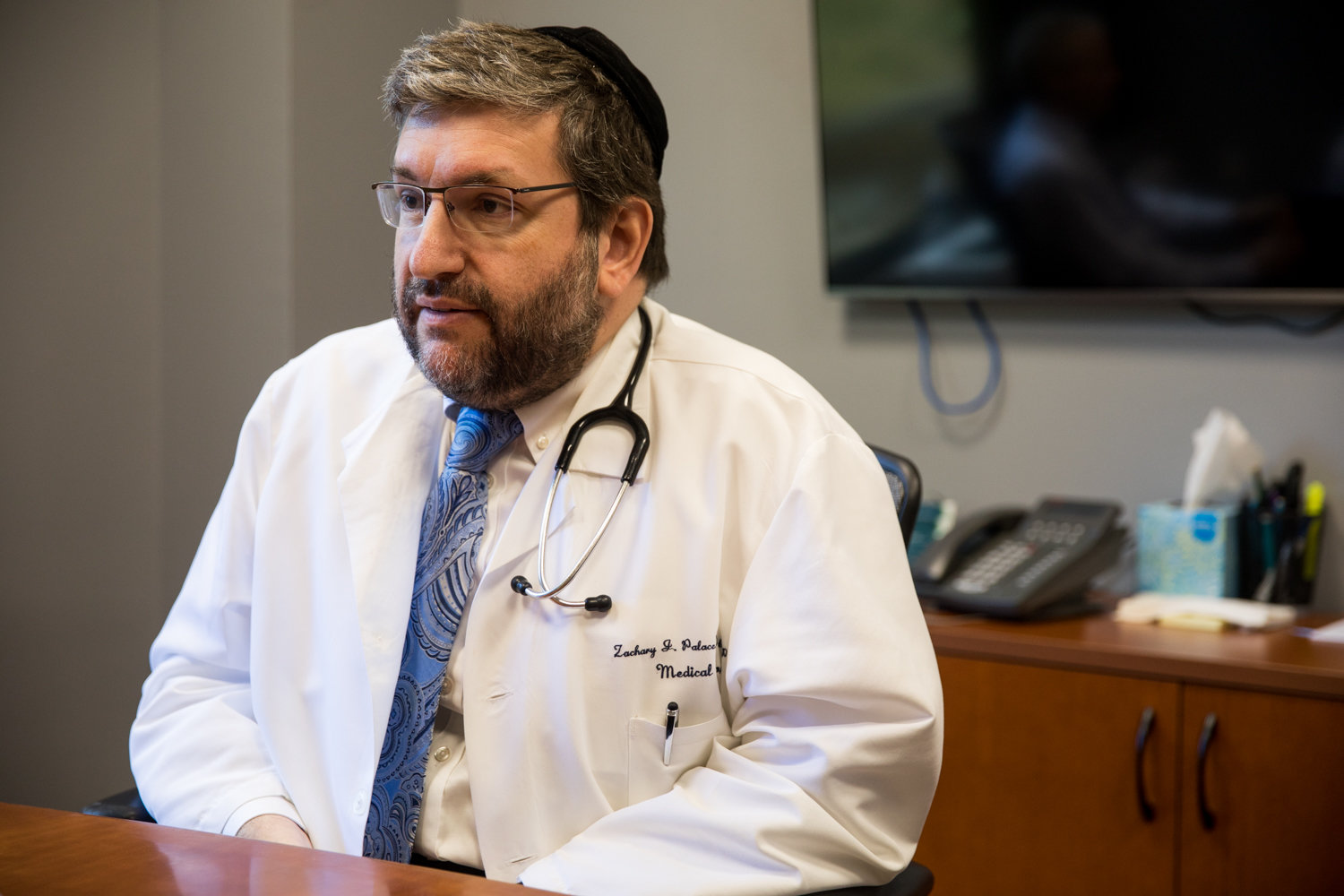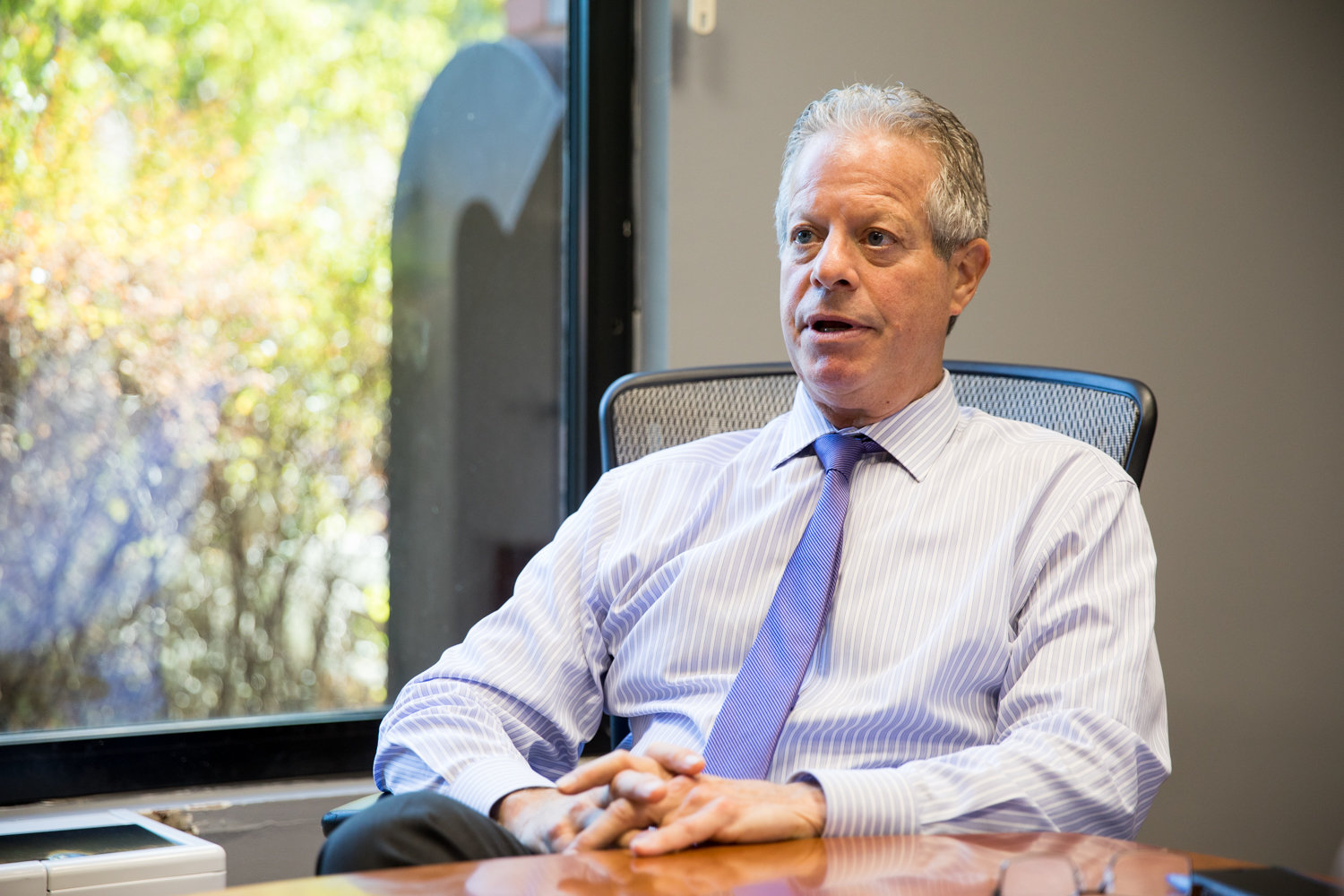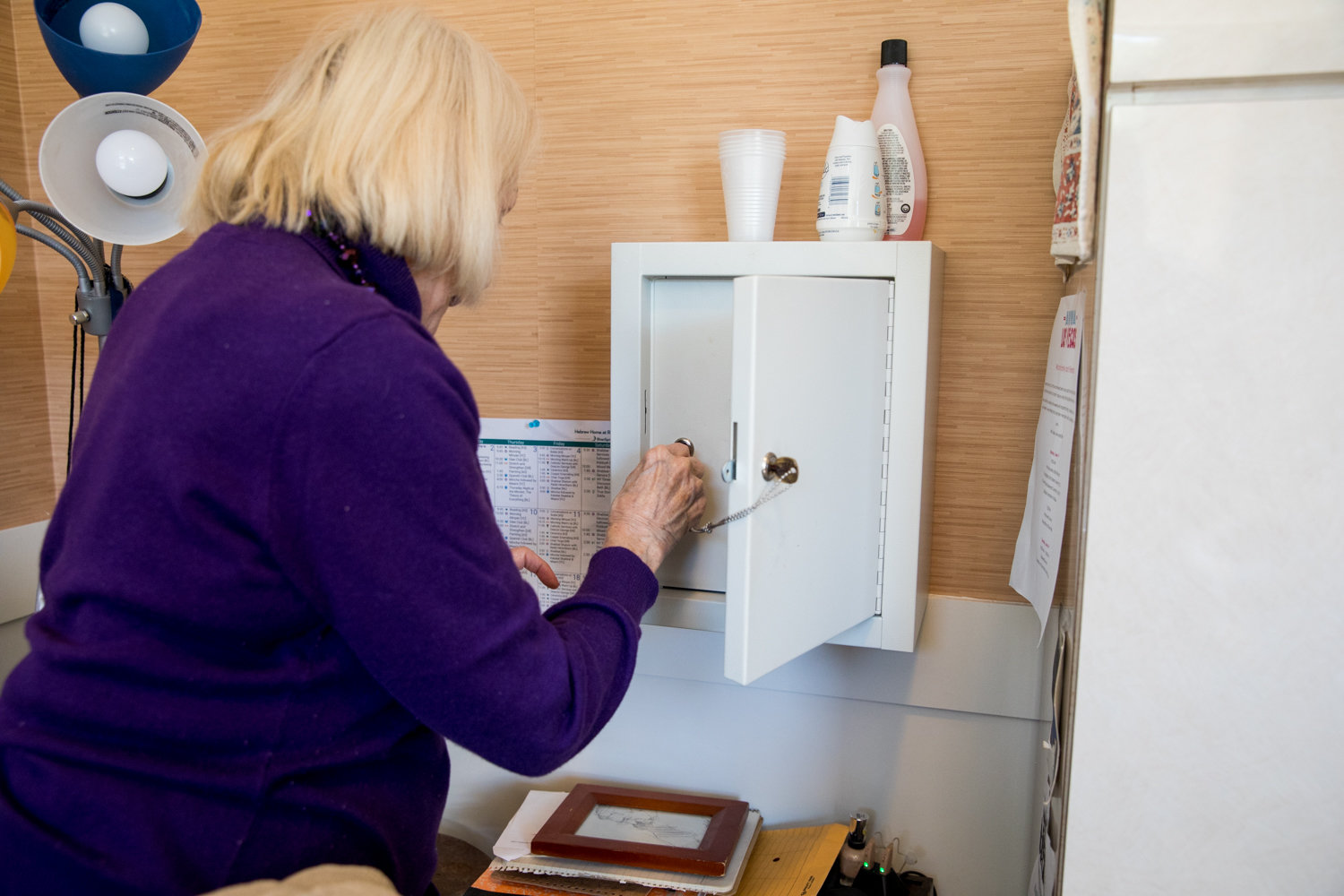Cannabis offers help for Hebrew Home residents
Zelda Fassler isn’t going quietly into that good night. She’s living out her golden years on her own terms.
Some of that includes keeping her mind sharp and joints limber as an active member of the Hebrew Home at Riverdale. It also includes partaking in a ground-breaking treatment using an unorthodox substance she’d never let her kids try when they were younger.
“Goodness, if I thought my children were taking marijuana in the ‘60s, I would have died,” the 87-year-old said.
But Fassler is one of several participants in the home’s medical cannabis program. And she’s had good results. The little green canister of liquid contains a carefully balanced mix of CBD — common in creams and other personal care products — and THC, the chemical that produces the high most people associate with recreational marijuana.
Like most medical cannabis, what Fassler takes can’t get you high. But that doesn’t stop people from hoping.
“People still ask for just a little hit of it,” she said. “It’s an oil. I ask, ‘Do you want a syringe?’”
Leading the pack
The Hebrew Home has long pioneered individualized care within an institution. It was among the first nursing homes in the country to have a sexual expression and intimacy policy, because the home’s leaders understood even when there’s snow on the roof, there’s still a fire in the chimney.
It’s also established the Harry and Jeanette Weinberg Center for Elder Justice, which shelters victims of elder abuse. The center provides several levels of assistance to men and women victimized by caretakers or others.
And in 2016, Reingold took a bold but innovative step as soon as the state’s medical marijuana legislation was signed into law. Much like voting or access to the postal service, nursing homes should allow and encourage residents to exercise their rights.
“So if a resident wants to use medical cannabis, it’s not just a matter of we’re going to let them or not let them,” he said. “We have an affirmative obligation to ensure that they get to exercise their rights as citizens of New York.”
Reingold saw first hand how cannabis, used as a medical treatment, could radically improve quality of life for the sick and dying. About 20 years ago, Reingold’s father was dying of cancer.
“He was in terrible, terrible pain, and there was nothing, no pain management protocols in place at the time,” he said. “I had read about cannabis being something that could be helpful.”
He got his hands on some marijuana, brewed it into a tea, and introduced it to his dad as a health food store remedy.
“And the last two weeks of his life before he died, it was truly miraculous,” Reingold said. “His appetite was restored, his whole mood was elevated. I mean, he was stoned.”
How to make cannabis work
Even before the ink of the governor’s signature was dry, Reingold had medical director Zachary Palace in his office working on how to make medical cannabis an official Hebrew Home policy.
Using cannabis to treat a variety of medical conditions isn’t new. Those suffering with chronic pain have used it for years as an alternative to addictive opioids. There’s promising data showing it can treat certain types of seizures. New York became the 29th state to legalize medical cannabis.
“Despite that, when I was inquiring with colleagues in other states about how they were using medical cannabis in other nursing homes, basically everyone I spoke with had nothing to say,” Palace said. “They said, ‘We don’t do that. We don’t allow that. That’s Schedule 1 and we don’t go there.’”
While state laws permit restricted usage, cannabis is still considered an illegal drug at the federal level. Most skilled nursing facilities are part of federal medical programs like Medicaid. Few are eager to do anything that could jeopardize their participation.
There’s also not a lot of data about the medical benefit of cannabis, mostly because American researchers don’t want the trouble that could come from administering a Schedule 1 substance.
So making the Hebrew Home’s program took plenty of thought, research and planning. Palace and Reingold did a lot of legal and medical research. Before Palace would recommend it to his patients, he needed to find enough evidence showing there’s a tangible benefit, and that it’d be safe for older folks to take.
Reingold thought up a policy that would allow residents to be referred for a medical cannabis prescription, but also kept the home safe from any legal ramifications.
The Hebrew Home physicians can recommend medical cannabis to treat state-restricted symptoms, but that’s where its influence ends. Residents must pay for it themselves, self-administer it, and keep it in double-locked strongboxes in their rooms.
Reingold and Palace formed a medical committee to weigh in on the proposal. After presenting the idea, the committee was unanimously in favor, Reingold said. They then pitched it to the board of directors, who were similarly enthused about it.
“Their one concern was that they were afraid the food budget might go up,” Reingold said.
Not what you think
But don’t assume that medical cannabis means Hebrew Home residents are rolling joints and lighting up in the halls. It’s a no smoking facility — and that includes e-cigarettes.
Instead, most participating residents down a carefully measured, carefully calibrated pharmaceutical-grade cannabis extract. The medical staff knows exactly how many milligrams of THC and CBD patients are getting in each dose, Palace said. That allows them to adjust either chemical to optimize the beneficial effects.
There’s not been any controversy or pushback from residents and families. That’s due, Palace said, to a thorough education about what medical cannabis is and how it affects the brain.
Once potential patients learn it’s not about getting high but treating symptoms without potentially harmful substances like opioids, more are willing to give cannabis a shot.
Fassler, herself was on several medications. Some were things like vitamins, but the majority were for pain.
“And they were pretty powerful medications, too,” Fassler added.
When pain reaches a certain level, the sufferer is desperate for even a little relief. Palace’s recommendation was enough to overcome any hesitation she felt about cannabis due to its recreational reputation.
Fortunately, it works well for her. It doesn’t take all the pain away, and she’s still on more traditional pain medications. But she takes fewer pills now, and without their negative affects, Hebrew Home staff said she’s more outgoing and participates in more activities.
“And I don’t get high,” Fassler said, with mock disappointment. “I wouldn’t mind it, from what I hear.”

